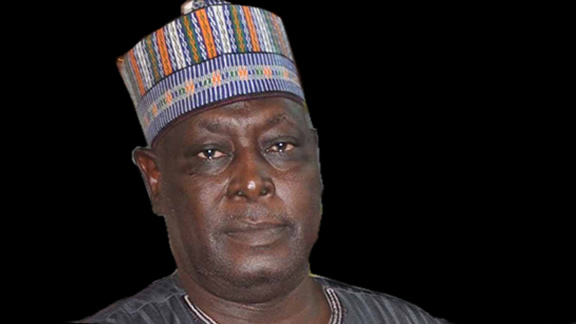Babachir Lawal, the former Secretary to the Government of the Federation, has ignited a controversy by downplaying President Bola Tinubu’s recent visit to the Vatican for the inauguration of Pope Leo XIV. Lawal argues that the President’s presence at the event, while symbolically significant for some, shouldn’t be misconstrued as a major achievement. He contends that such visits can be easily arranged through lobbying and connections within the Vatican, suggesting that Tinubu’s attendance may have been orchestrated through back channels and potentially even facilitated by undisclosed inducements. This dismissive stance has sparked debate about the true significance of the presidential visit and its implications for interfaith relations in Nigeria.
Lawal’s criticism goes beyond merely questioning the logistical aspects of the visit. He links it directly to his long-standing opposition to the Muslim-Muslim presidential ticket that propelled Tinubu to power. The former SGF argues that Tinubu’s presence at a predominantly Christian event, the inauguration of the Catholic Church’s leader, underscores the inherent insensitivity and imbalance of having both the President and Vice President profess the same faith. He posits that in a nation as religiously diverse as Nigeria, such an arrangement is not only unfair but also a deliberate slight against the Christian community. Had a Christian held the Vice Presidency, Lawal asserts, they would have been the natural choice to lead the delegation to the Vatican, signifying respect for religious diversity and inclusivity at the highest levels of government.
The controversy surrounding Tinubu’s visit highlights the deep-seated religious sensitivities in Nigeria. The country boasts a near-even split between Christians and Muslims, and political power has often been carefully balanced to reflect this demographic reality. The decision by the ruling All Progressives Congress (APC) to field a Muslim-Muslim ticket in the 2023 presidential election generated significant controversy and apprehension, particularly amongst the Christian population. Lawal’s comments tap into these pre-existing anxieties, giving voice to those who view the current political arrangement as marginalizing and disrespectful to their faith.
Furthermore, Lawal’s remarks about lobbying and potential inducements raise questions about the transparency and motivations behind the presidential visit. While it’s common practice for governments to engage in diplomatic outreach and cultivate relationships with religious leaders, Lawal’s insinuations suggest a less-than-transparent process. This feeds into a broader narrative of skepticism surrounding political maneuvering and the potential influence of undisclosed interests in shaping government actions. It also raises concerns about the potential misuse of public resources for personal or political gain, further fueling public distrust.
The incident has also sparked a wider debate about the role of religion in Nigerian politics. While the constitution guarantees freedom of religion and prohibits state religion, religious identity remains a powerful force in the country’s social and political landscape. Political parties often appeal to religious sentiments to mobilize support, and religious leaders can wield significant influence over their followers. This interplay of religion and politics can be a source of both strength and tension, fostering community solidarity on one hand but risking division and conflict on the other.
In conclusion, Babachir Lawal’s criticism of President Tinubu’s Vatican visit extends beyond a simple critique of diplomatic protocol. It represents a deeper unease about the implications of the Muslim-Muslim ticket for interfaith relations and the broader political landscape in Nigeria. His comments have reignited the debate about religious representation in government, the transparency of political processes, and the complex role of faith in shaping the country’s political destiny. The incident underscores the ongoing need for open dialogue and inclusive governance to address these sensitive issues and foster a sense of unity and belonging for all citizens, regardless of their religious beliefs. It also highlights the importance of transparency in government dealings to maintain public trust and ensure accountability in the exercise of power.


